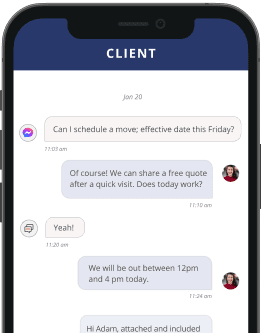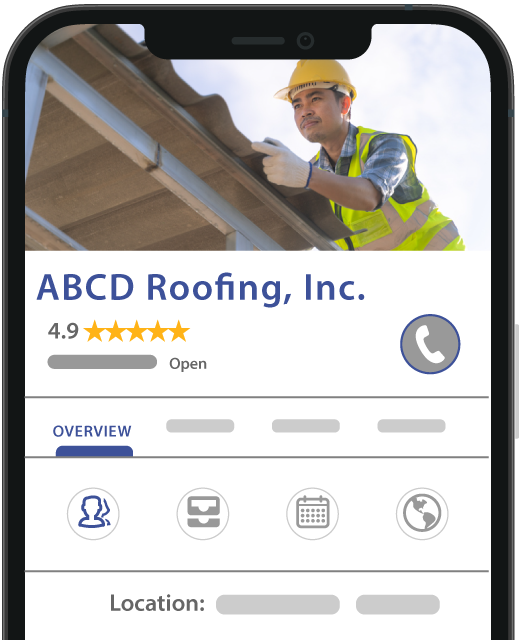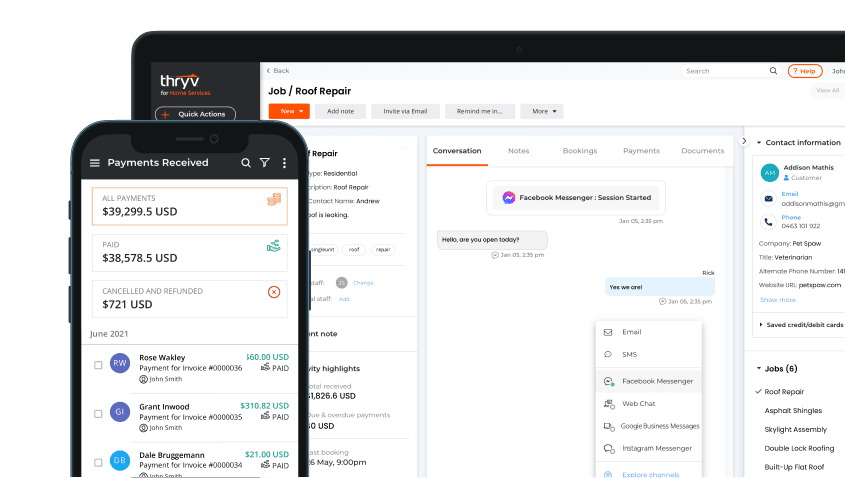If you’re exploring how to start a roofing business, you’re entering a field with high demand, solid earning potential, and plenty of room for growth. Whether you’re a skilled roofer ready to go solo or a business-minded entrepreneur looking for your next venture, this guide walks you through the essential steps to launching a successful roofing business.
1. Choose your roofing services
Before you invest in gear or start looking for jobs, it’s a good idea to narrow down what services your roofing business will offer. Specializing early helps you market more effectively and stay competitive. Common roofing services include:
- Residential roofing: Installing asphalt shingles, tile roofs, metal roofs, and more.
- Commercial roofing: Installing flat roofing systems like TPO, EPDM, and built-up roofing.
- Repair and maintenance: Leak fixes, flashing, seasonal upkeep, and gutter cleaning.
- Inspections and storm damage assessments: Evaluations to identify wear, potential leaks, or damage from hail, wind, or heavy rain.
- Energy-efficient upgrades: Installing solar roof integrations or reflective coatings.
Your offerings may depend on local demand, the type of jobs you’re licensed for, and what equipment you can afford early on.
2. Write a business plan
A well-structured business plan is one of the most important early steps when starting a roofing business. It not only keeps you focused but also serves as a roadmap for growth, and it can be essential if you’re applying for financing or bringing on investors.
Your business plan should clearly define what your roofing business will do, how it will operate, and how it will make money. Think of it as your blueprint for turning day-one decisions into long-term success.
Make sure to include the following items in your business plan:
- Your service focus and target customers: Outline the types of roofing services you’ll offer (residential, commercial, repairs, inspections) and who your ideal customers are. Will you target homeowners, real estate agents, or general contractors?
- Startup and operational costs: Include everything from equipment and licensing to insurance, marketing, payroll, and fuel. Detail what you’ll need upfront and what your monthly overhead will look like.
- pricing for roofing jobs and profitability benchmarks: Explain how you’ll calculate job estimates, what factors go into your pricing model, and how much revenue you’ll need to cover costs and turn a profit.
- A marketing plan to generate roofing leads: Identify your strategies for brand visibility – website, social media, local ads, word-of-mouth, and online directories. Note any tools you’ll use to automate outreach or manage follow-ups.
- Staffing goals, financial projections, and timelines: Include a hiring timeline, expected revenue milestones, and month-by-month goals for your first year. This section helps you stay accountable and measure success.
A strong plan makes your business more fundable, more strategic, and better prepared for growth. Even if you’re starting small, it’s worth taking the time to get this right.
3. Secure insurance coverage
One of the most important steps in starting a roofing business is protecting it from risk. Consider the types of insurance for roofing businesses to protect you and your team:
- General liability insurance: Covers third-party damage or injuries.
- Workers’ compensation: Required if you employ others; covers job-related injuries.
- Professional liability insurance: Protects against workmanship-related claims.
- Vehicle and equipment insurance: Covers theft or damage to trucks, trailers, or tools.
Make sure your insurance for roofing meets local legal requirements and matches the scale of your operations.
4. Set up your finances
A strong financial setup helps you track performance and avoid surprises. The specific steps to take here include:
- Open a business bank account to separate personal and business expenses.
- Set up an accounting system or hire a pro to manage taxes, payroll, and reports.
- Apply for loans or lines of credit to cover startup equipment, vehicles, and payroll.
This structure will also help you demonstrate stability when bidding for larger jobs.
5. Gather equipment and supplies
You don’t need everything on day one, but you’ll need enough gear to complete jobs safely and efficiently. Start with:
- A reliable truck or van with roof racks.
- Safety harnesses, ladders, tear-off tools, and roofing calculator apps.
- Nail guns, compressors, and hand tools.
- Tarps, tool belts, and disposal systems.
Also, build strong relationships with material suppliers, especially for high-volume materials like asphalt shingles and underlayment. Look for flexible payment terms and local delivery options.
6. Hire and train your crew
If you’re not working solo, hiring the right team is key to your roofing business reputation. Best practices include:
- Look for skilled roofers at supply stores, trade schools, or online job boards.
- Train everyone on job site safety, fall prevention, and installation standards.
- Set up payroll early to stay compliant and avoid payment delays.
Good training helps prevent rework and boosts customer satisfaction from the start.
7. Set up shop
Even if you’re starting a roofing business from your garage or home office, a professional setup makes a difference. For this, you’ll need:
- A business phone line and email address.
- A basic website with services, photos, and contact forms.
- Business cards and job site signage.
- Branded apparel for a polished crew look.
You can always grow into a commercial office space as your roofing business expands.
8. Create estimates and set your pricing
Accurate estimates are critical when starting a roofing business. They help you win jobs without losing money and build trust with your customers.
To price your roofing jobs effectively:
- Use a consistent formula based on labor hours, material costs, and project size. Factor in waste, weather delays, equipment use, and cleanup.
- Add overhead expenses like insurance, permits, fuel, and admin time.
- Include your desired profit margin – don’t undervalue your work just to win a bid.
- Using a roofing calculator or estimating software can help speed up the process and ensure consistency from one job to the next.
Pro tip: Always present estimates professionally and in writing. Include materials, labor, timeframes, and warranty terms. The more detailed your estimate, the more confident your customer will feel about hiring your roofing business.
9. Build your online presence
Even with strong word-of-mouth, customers want to find you online. Ways to build visibility include:
- Claim your Google Business Profile and add project photos and customer reviews.
- Set up a mobile-friendly website with a service list, testimonials, and contact forms.
- List your roofing business in directories like Angi, Thumbtack, and Yelp.
The right software makes it easy to launch and manage your site, ads, and listings in one place – especially helpful when you’re focused on jobs during the day.
10. Market your business
You can’t grow a roofing business without a steady stream of quality roofing leads – which means marketing needs to be part of your daily or weekly routine. Whether you’re just figuring out how to start a roofing business or looking to scale, consistent promotion keeps your pipeline full and your crew busy.
Strategies to try:
- Email or text past customers with seasonal maintenance offers: Create short, helpful messages reminding customers to check their roofs before winter or after a big storm. Offer limited-time specials for inspections or repairs to prompt quick responses.
- Run Google Ads targeting terms like “roof repair near me”: Paid search ads help you appear at the top of results when local homeowners need immediate help. Focus your targeting by zip code, service type, and budget.
- Leave door hangers and signs at job sites: When neighbors see your crew in action, they’re more likely to trust your work. Branded door hangers and “Another roof by [Your Company]” yard signs are low-cost, high-visibility tools.
- Join local business groups or sponsor community events: Build relationships through your Chamber of Commerce, BNI groups, or small business expos. Sponsor youth sports teams or neighborhood events to get your name out there in a positive light.
- Create referral incentives: Reward past customers or realtors who send new customers your way. A small gift card or discount on future services can go a long way.
- Engage with local Facebook groups: Many neighborhoods have community pages where people ask for contractor recommendations. Be active, helpful, and never too “salesy” – just be present and offer advice.
- Offer free roof inspections with photo reports: This gives you a chance to meet new leads face-to-face, show your professionalism, and uncover repair or upgrade opportunities.
- Use review requests to fuel more visibility: Follow up after every completed job with a thank-you message and a link to leave a Google review. More reviews builds more credibility and more leads.
- Post before-and-after photos on social media: Visual proof of your work builds trust. Tag your service areas and use relevant hashtags to increase local visibility.
- Add a blog to your website with helpful tips: Write short articles like “Signs You Need a New Roof” or “What to Expect During a Roof Replacement.” It helps with SEO and shows you know your stuff.
11. Use software to stay organized
Managing a roofing business involves more than just getting the job done – it’s about staying organized, communicating clearly, and running efficiently behind the scenes. The right software can give you a major advantage from day one.
Here are the top benefits of using software for roofing businesses:
- Save time through automation: Automate everyday tasks like appointment reminders, follow-ups, and review requests so you can focus on actual job site work.
- Improve customer experience: Respond faster, provide clear estimates, and deliver a more professional experience from first contact to final payment.
- Stay organized and reduce errors: Keep all your customer information, documents, and job details in one centralized dashboard so nothing falls through the cracks.
- Boost scheduling and crew coordination: Easily manage your calendar and assign jobs without confusion or overlap – even during your busiest weeks.
- Enhance communication: Use one software to send texts, emails, and updates so customers and team members always know what’s happening.
- Access information anywhere: Check job details, upload photos, or send invoices from your phone or tablet – no need to wait until you’re back at the office.
- Scale your business more easily: With systems in place, it’s easier to take on more customers, add crew members, and grow sustainably over time.
Whether you’re a one-person operation or you’re building a larger team, the right software helps you run your roofing business with less stress and more success.
Thryv: the comprehensive solution for roofing businesses
Whether you’re figuring out how to start a roofing business or already taking on customers, Thryv helps you handle the business side of things with ease. It’s an industry-leading marketing and sales software designed for contractors like you, with features tailored to simplify operations and win more jobs.
With Thryv, you can:
- Schedule jobs and assign team members from one dashboard: Coordinate calendars, assign crews, and avoid conflicts – all in one view.
- Send professional estimates and invoices on the spot: Turn walk-throughs into closed deals with fast, accurate quotes.
- Accept secure digital payments from any device: Get paid faster and reduce the paperwork with online or contactless payments.
- Communicate with customers via text, email, or web chat: Keep conversations organized and respond quickly to customer needs.
- Keep photos, contracts, and documents neatly organized: Access everything you need – on-site or in the office – with searchable job files.
- Manage your reputation and collect online reviews: Automatically request reviews, track feedback, and build local credibility.
- Build your online presence: Launch and manage a polished website with Thryv’s built-in tools.
- Market your business like a pro: Send promotional campaigns, schedule follow-ups, and measure results – no tech skills required.
- Manage social media with ease: Post updates, respond to comments, and grow your following without logging into multiple accounts.
- Keep everything organized with service scheduling software: Stay on top of job timelines, team assignments, and customer communications all in one dashboard.



